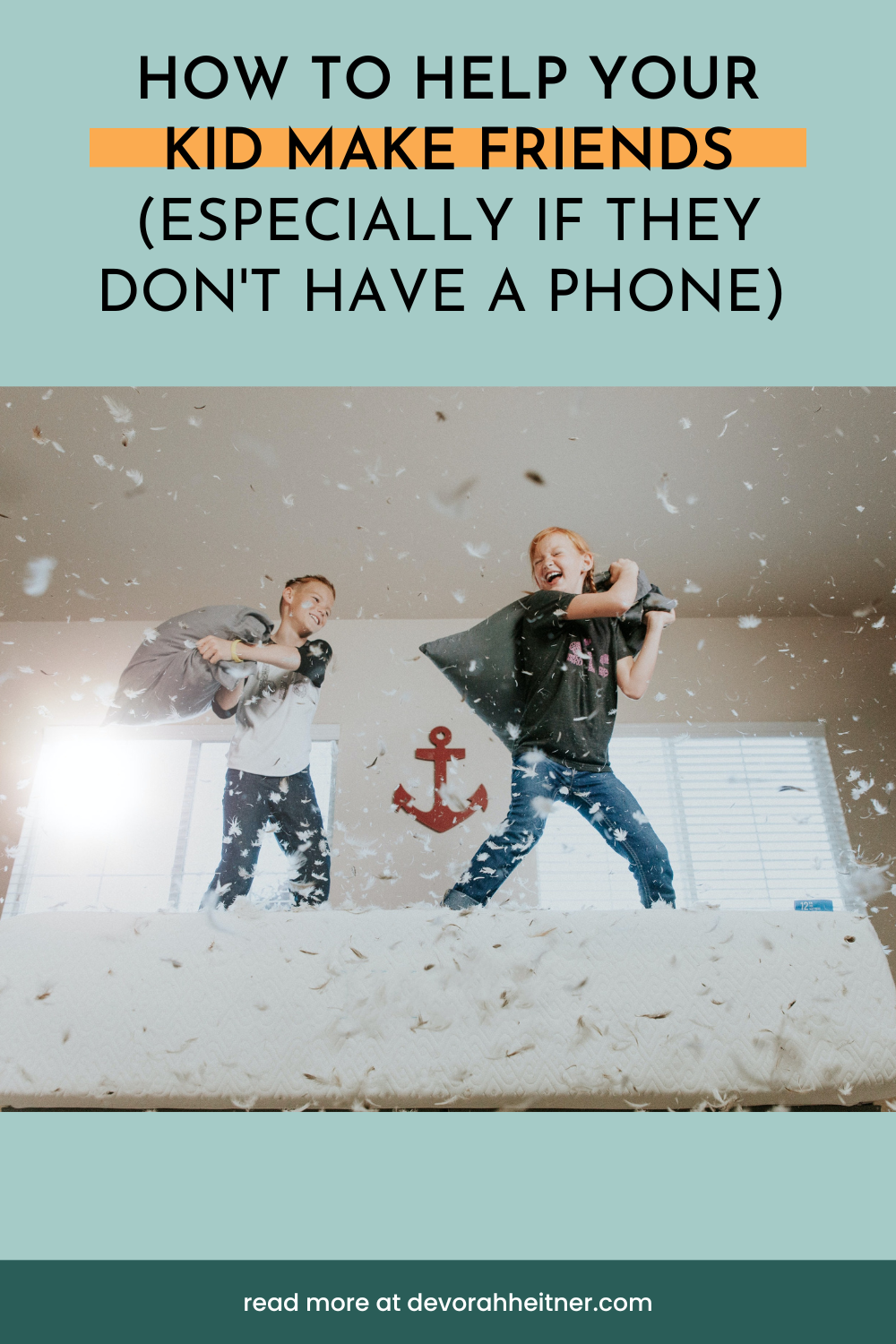
We moved last summer and we’re still getting to know our new town and neighborhood – Thanks pandemic! My kid was in fifth grade when the world shut down and reentered in-person school in seventh grade.
A few crucial social milestones have passed since elementary school. Kids are making their own plans (with some scaffolding and checking in – “Am I free on Saturday?” type questions and “Can you drive me somewhere” kinds of requests).
But kids are in a new place in terms of connecting with one another. And we can’t always facilitate. My kid’s new middle school doesn’t have a directory so my son is on his own if he wants to see someone outside of school – I can’t “help” by reaching out to parents.
And this is much to his relief, at this point. But there have been times where I miss my ability to reach out to other parents or even to know their names.
In your community, or at your kids’ school, that level of social independence may happen much sooner. Some kids are connecting independently and getting each other’s phone numbers, school email, or Roblox handle in 4th or 5th grade and communicating independently.
How can you help kids make friends – especially if your kid doesn’t have a phone?
I like to teach kids the idea of FP – someone who has “friend potential.” Here are some ways connect with kids who have that “friend potential!”
Ask them to meet up in Roblox, Minecraft, Fortnight or another online game
This can be a low stakes way to hang out outside of school with someone they like to talk to at lunch or recess. And hanging out won’t be limited to when a parent can drive them somewhere to meet up.
Meet up in-person at a low-pressure community space
If they’re not quite ready to hang out at this potential-new-friend’s house, is there a fun public space where they can meet up? The beach, the library, the skate park, an arcade, the school playground, or the library are all great options.
This takes the pressure off you to entertain and supervise someone else’s child and gives the kids something to do if they’re not quite at the stage of friendship where they’re having deep and meaningful conversations. They can compliment each other’s kick flips or diving techniques till they work up to deeper topics.
Join a club, a rec league, or an activity
Encourage your child to try something new. Clubs are about exploring interests but they are GREAT places to make friends and often allow more social time than the structured school day does. If your kid isn’t a super serious athlete but enjoys playing a sport, see if your neighborhood offers recreational leagues where your kid can make friends without the pressure of winning the state championship.
Clubs, leagues, and activities are also great because they sort of put socializing and friend-making on autopilot and remove the pressure to be planning play dates or remembering to nudge your kid to text a friend. Instead, you know that on Tuesdays your kid will always be meeting up with peers to play pickleball and on Friday they’ll always be practicing for the one-act play.
Things to keep in mind while making new friends
As your kid navigates making new friends in the digital age, it’s a great time to develop good tech habits before they get their first phone.
Teach kids what contact info they can share
If they don’t have a phone in elementary school, is it okay for the other kid’s parents to text you? Or can they use school email to make a plan? What the best way for a potential friend to contact them and vice versa?
Teach them to mindfully add contacts
Should you know every single person your child is befriending? Should you know their parents? At what age is their social universe largely their own?
Ask for help or insight if need be
It can be nerve-wracking to make an open bid to see a classmate outside of school. If kids are struggling with that, and you have a good school social worker, counselor or a supportive teacher, see if there is anything they can do to support the process.
A great book for all kids who need some good ideas for what to say is Catherine Newman’s What Can I Say. Filled with empathy and lovely illustrations, the book feels uplifting and not at all admonishing! She has advice for tricky situations including distancing yourself from a friend, showing empathy when others are struggling, and even kindly but firmly ending a dating relationship.
How do you help your kid connect with their peers – especially if they don’t have a phone? Please share your tips in the comments!

